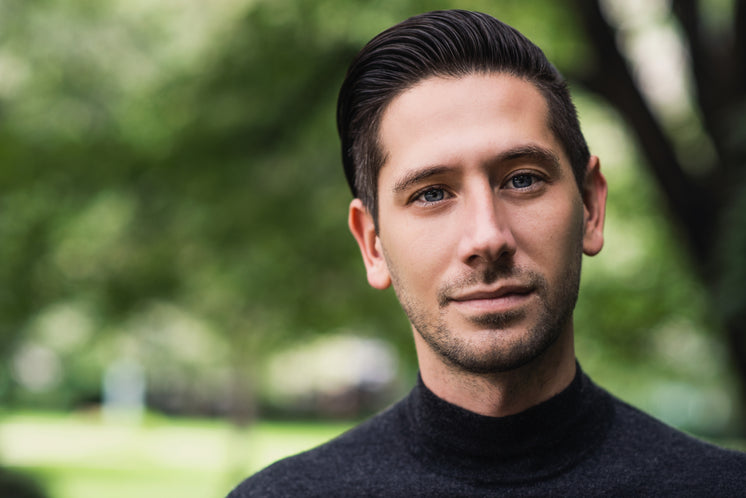Get Better Shooshtime Our Results By Following 3 Simple Steps

Owner: Jeanett
Group members: 1
To determine no matter whether the disabling provisions treatment CIPA's absence of narrow tailoring, we ought to to start with identify, as a make a difference of statutory building, beneath what situations the disabling provisions permit libraries to disable the software program filters.33 It is unclear to us regardless of whether CIPA's disabling provisions allow libraries to disable the filters any time a patron wishes to obtain speech that is neither obscenity, youngster pornography, or in the circumstance of a minimal patron, product that is harmful to minors. The Government argues that even if the use of software package filters mandated by CIPA blocks a significant sum of speech whose suppression serves no reputable condition fascination, and hence fails strict scrutiny's slim tailoring prerequisite, CIPA's disabling provisions heal any absence of slim tailoring inherent in filtering technological innovation. D. Do CIPA's Disabling Provisions Cure the Defect? On the other hand, deciphering CIPA's disabling provisions to permit disabling for access to all constitutionally protected speech provides numerous complications. The Supreme Court has built apparent that information-centered limitations that need recipients to discover by themselves in advance of becoming granted access to disfavored speech are subject to no a lot less scrutiny than outright bans on obtain to this sort of speech. Even if the disabling provisions permit community libraries to permit patrons to obtain speech that is constitutionally shielded still erroneously blocked by the software filters, the need that library patrons request a state actor's permission to obtain disfavored content violates the First Amendment.
 We consequently conclude that the government has failed to demonstrate that the less restrictive choices reviewed previously mentioned are ineffective at furthering the government's fascination possibly in stopping patrons from utilizing library personal computers to accessibility visual depictions that are obscene, youngster pornography, or in the case of minors, unsafe to minors, or in avoiding library patrons from remaining unwillingly exposed to patently offensive, sexually specific speech. Furthermore, Congress is plainly capable of explicitly specifying categories of constitutionally unprotected speech, as it did when it drafted CIPA to need funding recipients to use technological know-how protection measures that guard towards visible depictions that are "obscene," "child pornography," or, in the scenario of minors, "destructive to minors." CIPA § 1712(a) (codified at 20 U.S.C. § 254(h)(6)(C)), CIPA § 1712 (codified at twenty U.S.C. § 254(h)(6)(B)(i)(I)-(III)). If Congress supposed CIPA's disabling provisions basically to permit libraries to disable the filters to enable obtain to speech slipping outdoors of these categories, Congress could have drafted the disabling provisions with larger precision, expressly allowing libraries to disable the filters "to enable obtain for any material that is not obscene, youngster pornography, or in the scenario of minors, harmful to minors," relatively than "to enable access for bona fide research or other lawful purposes," which is the language that Congress in fact selected.
We consequently conclude that the government has failed to demonstrate that the less restrictive choices reviewed previously mentioned are ineffective at furthering the government's fascination possibly in stopping patrons from utilizing library personal computers to accessibility visual depictions that are obscene, youngster pornography, or in the case of minors, unsafe to minors, or in avoiding library patrons from remaining unwillingly exposed to patently offensive, sexually specific speech. Furthermore, Congress is plainly capable of explicitly specifying categories of constitutionally unprotected speech, as it did when it drafted CIPA to need funding recipients to use technological know-how protection measures that guard towards visible depictions that are "obscene," "child pornography," or, in the scenario of minors, "destructive to minors." CIPA § 1712(a) (codified at 20 U.S.C. § 254(h)(6)(C)), CIPA § 1712 (codified at twenty U.S.C. § 254(h)(6)(B)(i)(I)-(III)). If Congress supposed CIPA's disabling provisions basically to permit libraries to disable the filters to enable obtain to speech slipping outdoors of these categories, Congress could have drafted the disabling provisions with larger precision, expressly allowing libraries to disable the filters "to enable obtain for any material that is not obscene, youngster pornography, or in the scenario of minors, harmful to minors," relatively than "to enable access for bona fide research or other lawful purposes," which is the language that Congress in fact selected.

§ 9134(f)(1)(A)(i)(I)-(III)) CIPA § 1721(b) (codified at forty seven U.S.C. CIPA § 1721(b) (codified at 47 U.S.C. CIPA § 1712(a)(2) (codified at twenty U.S.C. In re Federal State Joint Board on Universal Service: Children's Internet Protection Act, CC Docket No. 96-45, Report and Order, Sexylivewebcam.Com FCC 01-120, ¶ thirty (Apr. 5, 2001) ("CIPA makes no distinction in between personal computers utilised only by workers and these accessible to the community."). 727, 116 S.Ct. 2374, 135 L.Ed.2nd 888 (1996), the Court held unconstitutional a federal law requiring cable operators to allow for obtain to patently offensive, sexually specific programming only to all those subscribers who asked for entry to the programming in advance and in producing. Id. at 754, 116 S.Ct. Id. at 732-33, 116 S.Ct. Id. at 307, 85 S.Ct. 289, 121 S.Ct. 2271, 2279, 150 L.Ed.2d 347 (2001) (internal quotation marks and citations omitted). 249, 253, 112 S.Ct. Plaintiff Emmalyn Rood, who applied the Internet at a community library to study details relating to her sexual id, testified that she would have been unwilling as a younger teen to request a librarian to disable filtering software package so that she could perspective components relating to gay and lesbian challenges.34 Similarly, plaintiff Mark Brown said that he would have been also ashamed to request a librarian to disable filtering computer software if it had impeded his capability to research surgical treatment solutions for his mom when she was taken care of for breast cancer.35 As discussed in our findings of truth, see supra at Subsection II.D.2.b, the reluctance of patrons to ask for permission to obtain Web sites that were erroneously blocked is additional founded by the reduced variety of patron unblocking requests, relative to the amount of erroneously blocked Web sites, in all those public libraries that use computer software filters and allow patrons to ask for entry to improperly blocked Web web sites.
Internet products and services were being restored the future day cutting down the time period of suspension to 1 day. Whether CIPA permits disabling in such situations relies upon on the indicating of the provisions' reference to "bona fide analysis or other lawful purpose." On the just one hand, the language "to allow access for bona fide exploration or other lawful goal" could be interpreted to necessarily mean "to permit accessibility to all constitutionally protected material." As a textual matter, this looking through of the disabling provisions is plausible. First, if "other lawful objective" implies "for the objective of accessing constitutionally protected speech," then this looking through renders superfluous CIPA's reference to "bona fide investigation," which clearly contemplates some objective over and above simply just accessing constitutionally secured speech. We believe that CIPA's disabling provisions put up with from the identical flaws as the constraints on speech in Lamont, Denver, and Fabulous Associates. At base, even so, we have to have not definitively construe CIPA's disabling provisions, because it suffices in this scenario to believe devoid of determining that the disabling provisions permit libraries to permit a patron entry to any speech that is constitutionally shielded with respect to that patron. By necessitating library patrons affirmatively to request authorization to access specified speech singled out on the foundation of its material, CIPA will prevent patrons from requesting that a library disable filters to allow the patron to accessibility speech that is constitutionally guarded, still sensitive in nature.
Get Better Shooshtime Our Results By Following 3 Simple Steps
Group members
About ✔ Terms ✔Privacy
Say and get NFT
© 2017-2022
«0xbt»
A world without censorship
0xbt[cat]0xbt.net